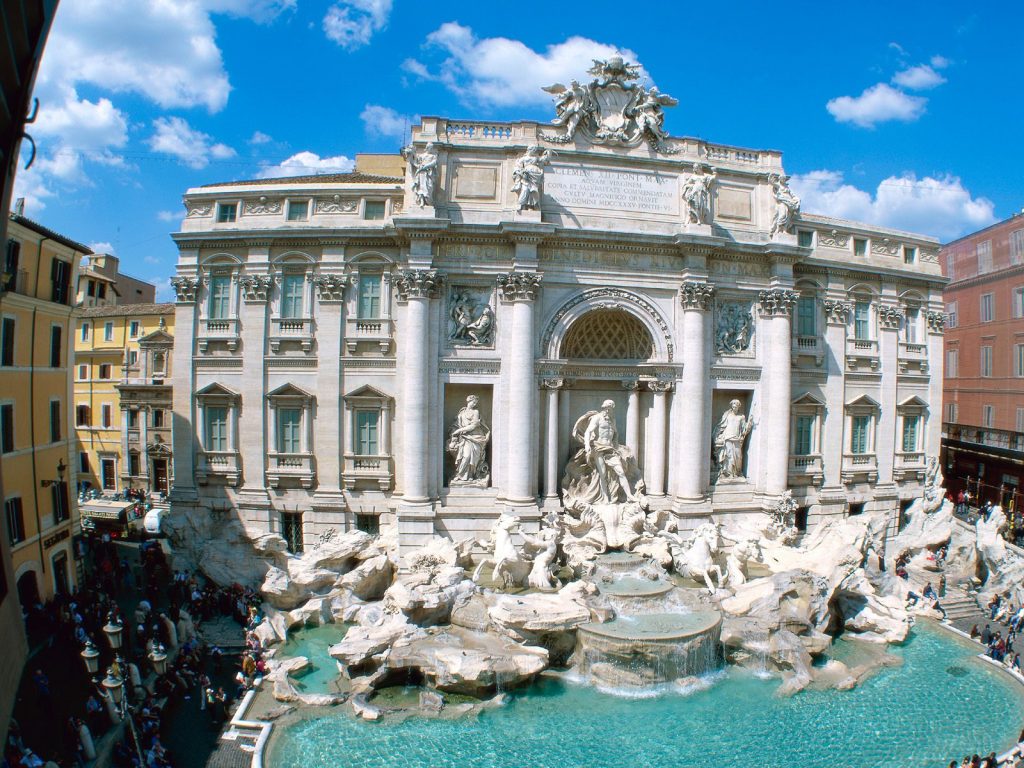
Lugen Family Office Lobby in the Marine Building, Vancouver, BC, Canada
Lugen Family Office has
embarked on its own journey to
create legacy projects that will
make a difference in the world.
embarked on its own journey to
create legacy projects that will
make a difference in the world.

The following are some of our legacy projects:

Roma Capitale Investments
Foundation
Foundation
Lugen Family Office was a strategic advisor for the creation of Roma Capitale Investments Foundation, a P3 foundation in Italy.
Lugen Family Office is a founding member of the Center for Family Conversations (CFC), begun in March 2013, which is a faith-based resource center that provides the integral tools and ideas in helping families establish a 100-year-plus Family Legacy Plan.
Committed to reversing the infamous “90% Rule”—which is that 90% of families lose their wealth by the third generation—the CFC offers families access to industry leaders in key planning categories, helping them build their legacy for generations to come.
Under the guidance of our strategic legacy experts, families will develop a Family Narrative that links spiritual and relational elements with their generational planning.
Committed to reversing the infamous “90% Rule”—which is that 90% of families lose their wealth by the third generation—the CFC offers families access to industry leaders in key planning categories, helping them build their legacy for generations to come.
Under the guidance of our strategic legacy experts, families will develop a Family Narrative that links spiritual and relational elements with their generational planning.


Enzo Calamo is an Ambassador, Past President, and Past Board Member of AIP.
The number one association for advisors in philanthropic planning.
The International Association of Advisors in Philanthropy, Inc. is a forum of professional advisors who are dedicated and inspired to teach and empower clients to effectively direct their philanthropic resources consistent with their deepest values.
The number one association for advisors in philanthropic planning.
The International Association of Advisors in Philanthropy, Inc. is a forum of professional advisors who are dedicated and inspired to teach and empower clients to effectively direct their philanthropic resources consistent with their deepest values.
The Ultimate Gift
In 1999, Jim Stovall wrote the novel, The Ultimate Gift, without a major publisher, any retail presence, or proactive marketing campaign. Jim’s novel went on to sell more than 3 million copies and has been translated into more than 15 languages throughout the world.
Lugen Family Office was an initial investor in The Ultimate Gift and a founding Ambassador of The Ultimate Gift Movement, which has spread globally and has inspired millions to realize that their own lives are their most precious gifts.
Lugen Family Office was an initial investor in The Ultimate Gift and a founding Ambassador of The Ultimate Gift Movement, which has spread globally and has inspired millions to realize that their own lives are their most precious gifts.
Why Does LFO Only Work On Legacy Projects ?
Why the Parable of the Sower is Powerful…
When you understand the parable of the sower you can see why it can be so powerful. The parable of the sower talks about those that produce fruit producing 30 times, 60 times, even 100 times more than they started with. It is the dream of Lugen Family Office to make each of our clients the seed that produces 100x more fruit for many generations to come.
Parable of the Farmer Scattering Seed in the Bible – Mark 4: 1-20
1 Once again Jesus began teaching by the lakeshore. A very large crowd soon gathered around him, so he got into a boat. Then he sat in the boat while all the people remained on the shore. 2 He taught them by telling many stories in the form of parables, such as this one:
3 “Listen! A farmer went out to plant some seed. 4 As he scattered it across his field, some of the seed fell on a footpath, and the birds came and ate it. 5 Other seed fell on shallow soil with underlying rock. The seed sprouted quickly because the soil was shallow. 6 But the plant soon wilted under the hot sun, and since it didn’t have deep roots, it died. 7 Other seed fell among thorns that grew up and choked out the tender plants so they produced no grain. 8 Still other seeds fell on fertile soil, and they sprouted, grew, and produced a crop that was thirty, sixty, and even a hundred times as much as had been planted!” 9 Then he said, “Anyone with ears to hear should listen and understand.”
10 Later, when Jesus was alone with the twelve disciples and with the others who were gathered around, they asked him what the parables meant.
11 He replied, “You are permitted to understand the secret of the Kingdom of God. But I use parables for everything I say to outsiders, 12 so that the Scriptures might be fulfilled:
3 “Listen! A farmer went out to plant some seed. 4 As he scattered it across his field, some of the seed fell on a footpath, and the birds came and ate it. 5 Other seed fell on shallow soil with underlying rock. The seed sprouted quickly because the soil was shallow. 6 But the plant soon wilted under the hot sun, and since it didn’t have deep roots, it died. 7 Other seed fell among thorns that grew up and choked out the tender plants so they produced no grain. 8 Still other seeds fell on fertile soil, and they sprouted, grew, and produced a crop that was thirty, sixty, and even a hundred times as much as had been planted!” 9 Then he said, “Anyone with ears to hear should listen and understand.”
10 Later, when Jesus was alone with the twelve disciples and with the others who were gathered around, they asked him what the parables meant.
11 He replied, “You are permitted to understand the secret of the Kingdom of God. But I use parables for everything I say to outsiders, 12 so that the Scriptures might be fulfilled:
” When they see what I do,
they will learn nothing.
When they hear what I say,
they will not understand.
Otherwise, they will turn to me
and be forgiven.”
they will learn nothing.
When they hear what I say,
they will not understand.
Otherwise, they will turn to me
and be forgiven.”
13 Then Jesus said to them, “If you can’t understand the meaning of this parable, how will you understand all the other parables? 14 The farmer plants seed by taking God’s word to others. 15 The seed that fell on the footpath represents those who hear the message, only to have Satan come at once and take it away. 16 The seed on the rocky soil represents those who hear the message and immediately receive it with joy. 17 But since they don’t have deep roots, they don’t last long. They fall away as soon as they have problems or are persecuted for believing God’s word. 18 The seed that fell among the thorns represents others who hear God’s word, 19 but all too quickly the message is crowded out by the worries of this life, the lure of wealth, and the desire for other things, so no fruit is produced. 20 And the seed that fell on good soil represents those who hear and accept God’s word and produce a harvest of thirty, sixty, or even a hundred times as much as had been planted!”
Applying the Principles of the Parable of the Sower…
To understand the parable of the sower you need to understand the farming techniques of the days of Jesus. In our western civilization we prepare the soil prior to planting the seeds. In the times of Jesus, and even in many parts of the middle east today, they spread the seed before the soil is prepared. That is why Jesus gives 4 types of soil that the seed falls on. In this parable, Jesus does not tell the sower to judge the soil or decide what soil is ready for planting and what soil is not ready. He says that the sower sows the seed. It is not our job to judge, discern, or decide what soil is ready for a seed to be planted. It is our job to sow the seeds regardless of soil condition
There are 4 types of soil that we plant seeds into.
There are 4 types of soil that we plant seeds into.
- Seed that falls by the wayside.The wayside was the beaten path around the field. It is the ground that has been hardened and trampled on by the feet of people. This soil, otherwise known as a human heart, has been walked on until it has become hardened and impenetrable. These hearts have been hardened because of the years of being walked on by people. This seed falls on soil that is skeptical and cynical.
- Seed sown in rocky soil. This soil is similar to the wayside. It has no place to dig deep roots in the heart of this person because this person’s heart is wounded and damaged with areas that are hard and inflexible to the change needed to be good soil. Because of this, at the first sign of trouble, this person gives up because they have no ability to stand up against the crowd. They are the typical people pleaser.
- The seed that is choked out of fruitfulness by thorns. This heart is one that is in good enough shape that it produces a living plant that survives. Yet because of other priorities in it’s life it never produces any fruit. It cares more about the basic mundane things of life, or focuses on getting rich, or places other desires above the desire to do what it was meant to do which was produce fruit. Since it’s priorities are out of alignment, this seed never gets to the point to producing other seeds.
- The seed in good soil. This seed sprouts, grows and produces more seeds. It produces a harvest. It reproduces and it effects people all around them. This seed starts the principle of the parable of the sower once again.
Now that is something to think about! Become part of our movement today and help make
the world a better place.
the world a better place.

